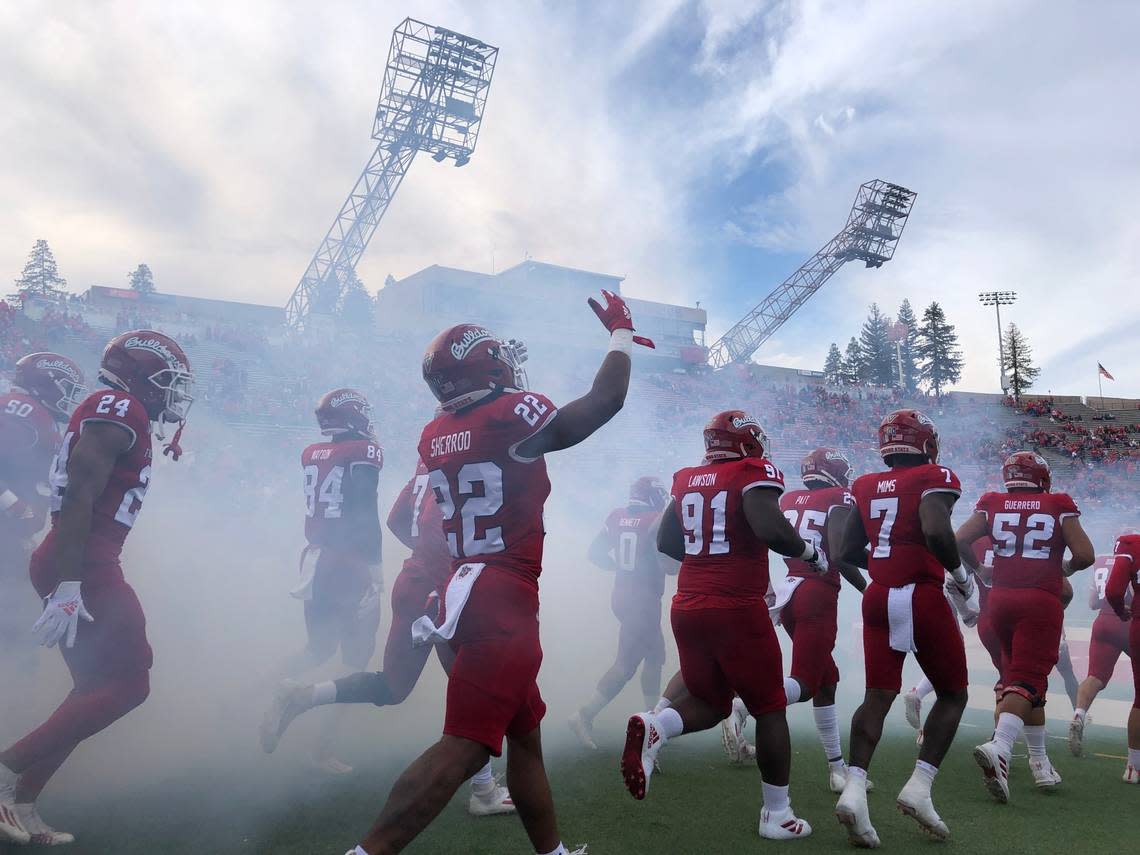Builder-backed Fresno State ballot measure is one tax too far for county residents
During the last decade, California voters have been asked to raise the sales tax for all sorts of things.
Transportation, police and fire are by far the most frequent, followed by libraries, parks, health care, education, infrastructure and vector controls. Voters in one county ― take a bow, Fresno ― are more than willing to pay an extra 0.1% in sales tax to fund and operate a zoo.
But not a single time, at least not among the 516 local ballot measures proposed statewide between 2010 and 2020, were voters asked to pay more at the cash register for facilities upgrades at a university.
Consider yourselves special, Fresno.
As reported last week, a group calling itself the Fresno State Improvement Zone Committee is pushing for a 0.2% increase to the countywide transaction and use tax for the next 20 years. Backers have already collected most of the required 25,000 verified signatures necessary to place the initiative on the November ballot.
Opinion
The driving force behind the tax initiative is Richard Spencer, one of the area’s largest builders and a 20-year member of the California State University, Fresno Foundation Board of Governors.
Among his multiple business interests, Spencer owns Harris Construction, one of Central California’s largest general contractors and construction management firms. Spencer is no stranger to dipping into the public trough. In 2012, after one of his companies received a no-bid contract for a junior high from Fresno Unified School District, Spencer was a principal in the ensuing legal brouhaha over lease-leaseback deals.
Harris Construction also has a heavy presence at Fresno State. Spencer’s firm built the $29 million Jordan Agricultural Research Center, which opened in 2016, and is under contract for four other current or recently completed campus infrastructure projects totaling $22 million.
University spokeswoman Lauren Nickerson was quick to remind me that Fresno State works with numerous general contractors, and that all contracts procured by Harris Construction were done so through CSU’s competitive bidding process.
That’s all good information, and I’m not suggesting anything improper. But can you see why it might be in the best interest of a construction company owner to sponsor a tax initiative that would generate more money for construction?
I certainly hope so.
It also behooves me to mention that Spencer, in October 2018, contributed $10,000 to a group that opposed Measure P, the city of Fresno parks tax that was ultimately approved following a two-year court battle.
Which just goes to show not all taxes are bad. Not as long as your company and industry stand to benefit.
And now that the winning threshold for local ballot measures is a simple majority rather than two-thirds ― due in large part to the efforts of relentless Measure P proponents ― future tax initiatives like this one have a lower bar to clear.
The irony shouldn’t be lost on anyone reading.
Most California sales tax measures pass
Based on recent trends, the Fresno State improvement zone tax may have a better chance of success than one might expect.
According to a 2021 report by the nonprofit California Tax Foundation that tracked all 1,956 local tax measures appearing on statewide ballots between 2010-20, 1,359 (69.5%) were approved.
Out of the 1,956 local tax measures, 516 called for sales tax increases. Statewide, the approval rate for those 516 initiatives was 74.1%. In the Central Valley, a 15-county area stretching from Butte to Kern, the approval rate was 64.3%.
The 52-page report contains all sorts of interesting reading. For example, I learned Fresno County residents are the only ones in California using sales tax to fund a zoo. Using sales tax to pay for Fresno State facility and football stadium improvements would be another unique distinction.

In all my decades as a voter, I don’t think I’ve ever gone against a school bond. But a sales tax to benefit a public university, which is already largely taxpayer funded? That’s a burden residents shouldn’t be asked to bear, especially the ones that are barely getting by.
I get that Fresno State and the community are intertwined. The more nurses, engineers and agriculture scientists the university can produce, the better off we are as a region. Here more than anyplace else in California, arguably.
Private donations, not public funds
Still, that’s not enough to let university officials off the hook from one of their primary responsibilities. If Fresno State wants to expand its School of Nursing or finally bring Bulldog Stadium into the 21st century (both worthy projects), it needs to privately fund-raise and/or lobby the mothership for more money. Same as always.
Two decades ago, when the goal was to build an on-campus arena, taxpayers weren’t made to foot the bill. University fundraisers cobbled together a naming right’s deal with a supermarket chain, a pouring right’s deal with Pepsi and a few key donations from wealthy boosters, and voila: Save Mart Center was born.
More recently, San Diego State asked for (and received) $310 million in revenue bonds from the CSU Board of Trustees to fund construction of a new 35,000-seat football stadium projected to open in September. The university plans to pay off those bonds, over the next 30 years, using revenues generated by the stadium.
No reason why a similar formula (and for a lot less considering the modest improvements currently planned for Bulldog Stadium) can’t work here.
Over the last few years, Fresno voters (both city and county) have displayed a willingness to tax themselves over things that matter to them. It’s clear those behind the Fresno State improvement zone eagerly hope to capitalize on that trend.





